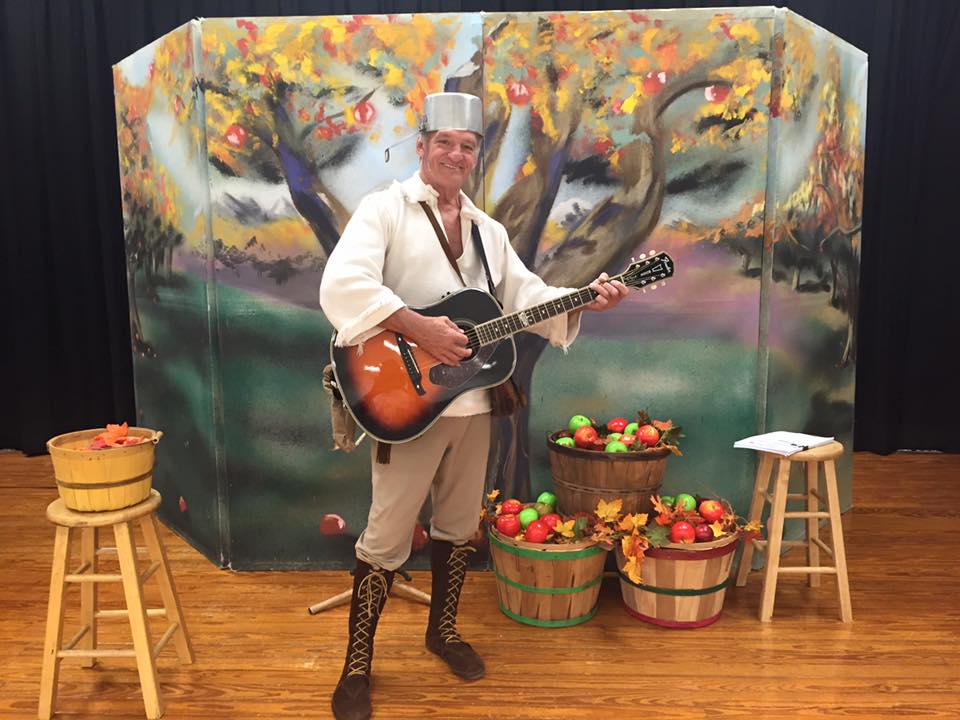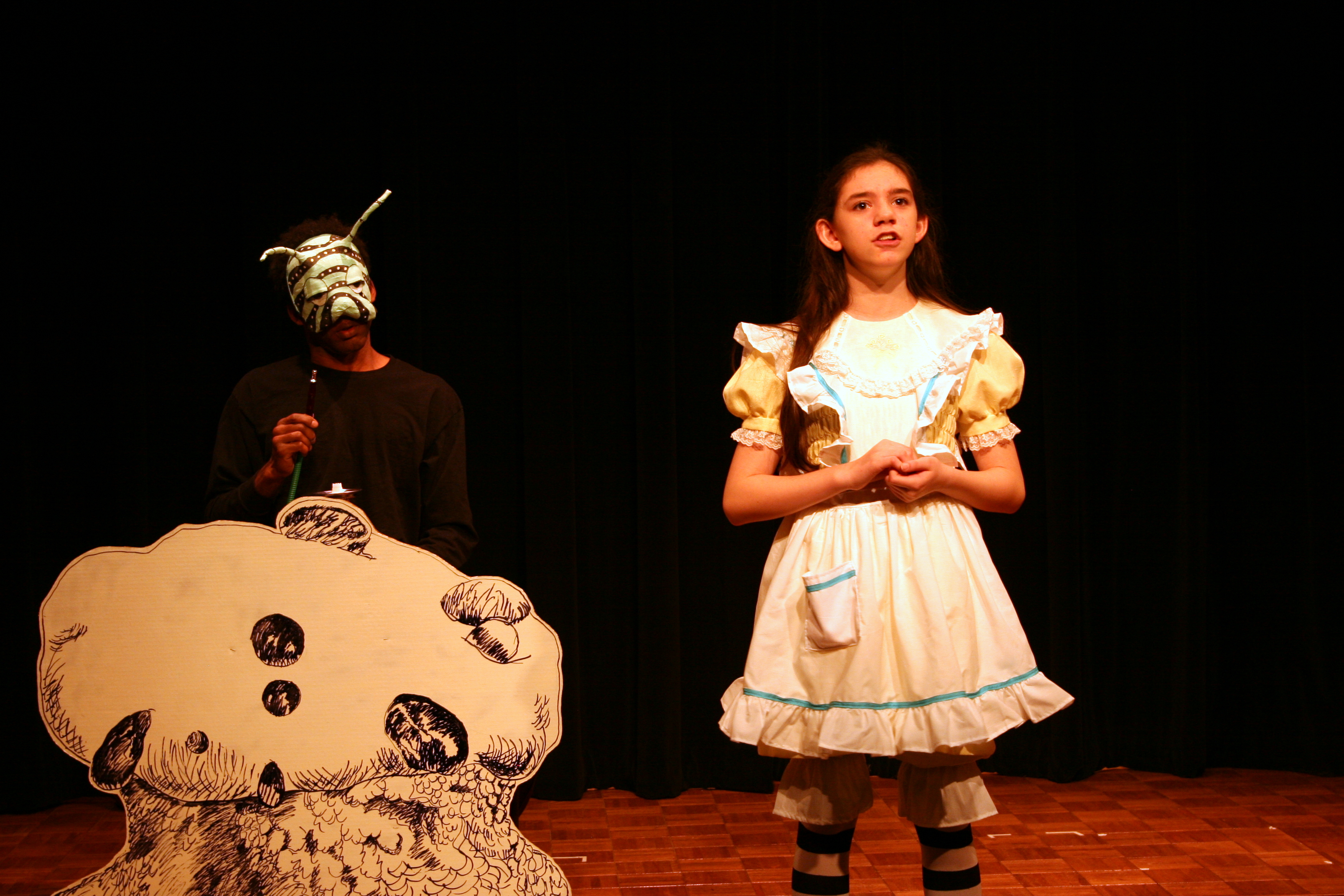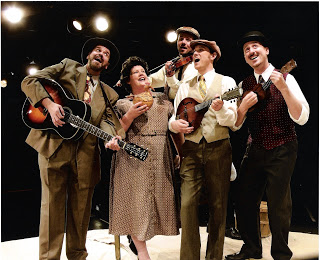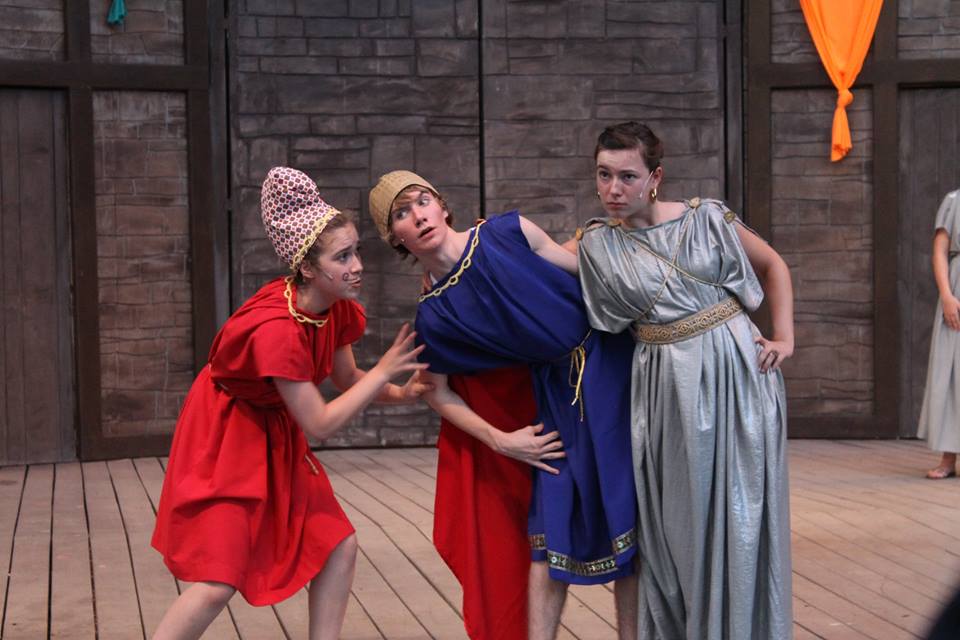Mike Seely in Johnny Appleseed.
Johnny Appleseed
Book and music by Geraldine Ann Snyder
Directed by Hallie Dizarevic
Review by Keith Waits
Entire contents copyright © 2015 by Keith Waits. All rights reserved.
John Chapman was a real person who placed Johnny Appleseed into legend. One of the uniquely American folk tales, like Paul Bunyan, that herald the vast expanse of the American landscape before industrialization began to alter the American identity. If that sounds a bit heavy for an easy-going short-form play with music pitched to children under 12, so be it. But educational programming should have a deeper foundation than charm and diversion, and while this Blue Apple Players chestnut certainly has those qualities, its inclusion in curriculum reaching a mixed-cultural student population raises a worthwhile question: are the old stories relevant to new generations with their own cultural history.
If your life has brought you to the United States, then an understanding of the history and traditions should seem important, and Johnny Appleseed pays tribute to the agrarian ideal that dominates the earlier American history, where land was valued above most things. Manifest Destiny claimed all the land between two vast oceans and the epic scale of that vision was unique in the world at that time.
The students at Mill Creek Elementary may only take away the simple moral lessons that ride on the surface of the text, or they might leave with a sense of service to a higher ideal, or a newfound respect for the environment, but they may just someday remember Johnny Appleseed as a moment when they began to understand the particular American mythology of folk tales and how they represent something lost in the American character.
The straightforward narrative tells of Johnny’s youth in school, his apprenticeship in the orchards of James Trueblood, and his connection with communities all across the Midwest after a lifetime of planting seed and teaching others how to tend the apple trees. There are six songs performed with sufficient vigor (and newly arranged by Music Director Aaron Craker), a good deal of humor (Tony Smith was a heavy favorite with his broader physical comedy) and the earnest tone that could fall flat except for the energy of the ensemble and, most especially, the boyish charm of Mike Seely in the title role. Mr. Seely is of an age closer to the “old man” Appleseed of the final scenes, but he is also adept at capturing the youth and exuberance of the young Johnny without straining credulity. Annie Smith and Omicah House were adroit supporting players in several roles, and Emily Pike Stewart displayed a strong soprano in a featured moment. Erin Fitzgerald and Akhila Cherry provided able and sensitive accompaniment on guitar, violin, banjo, glockenspiel, and dulcimer, all explained in a brief intro by Ms. Fitzgerald.
Although a staple of past seasons for Blue Apple, this Johnny Appleseed is the first time that this format has been presented since the merger of Walden Theatre and Blue Apple Players was formalized earlier this year. Directed by long-time Walden faculty Hallie Dizdarevic and with a cast that includes Blue Apple veterans, it feels like the new company hasn’t missed a beat.
Johnny Appleseed
November 17, 2015
Walden Theatre / Blue Apple Players
Mill Creek Elementary
3816 Dixie Highway
Louisville, Kentucky 402
Waldentheatre.org
Keith Waits is a native of Louisville who works at Louisville Visual Art during the days, including being one of the hosts of PUBLIC on ARTxFM, but spends most of his evenings indulging his taste for theatre, music and visual arts. His work has appeared in Pure Uncut Candy, TheatreLouisville, and Louisville Mojo. He is now Managing Editor for Arts-Louisville.com.





